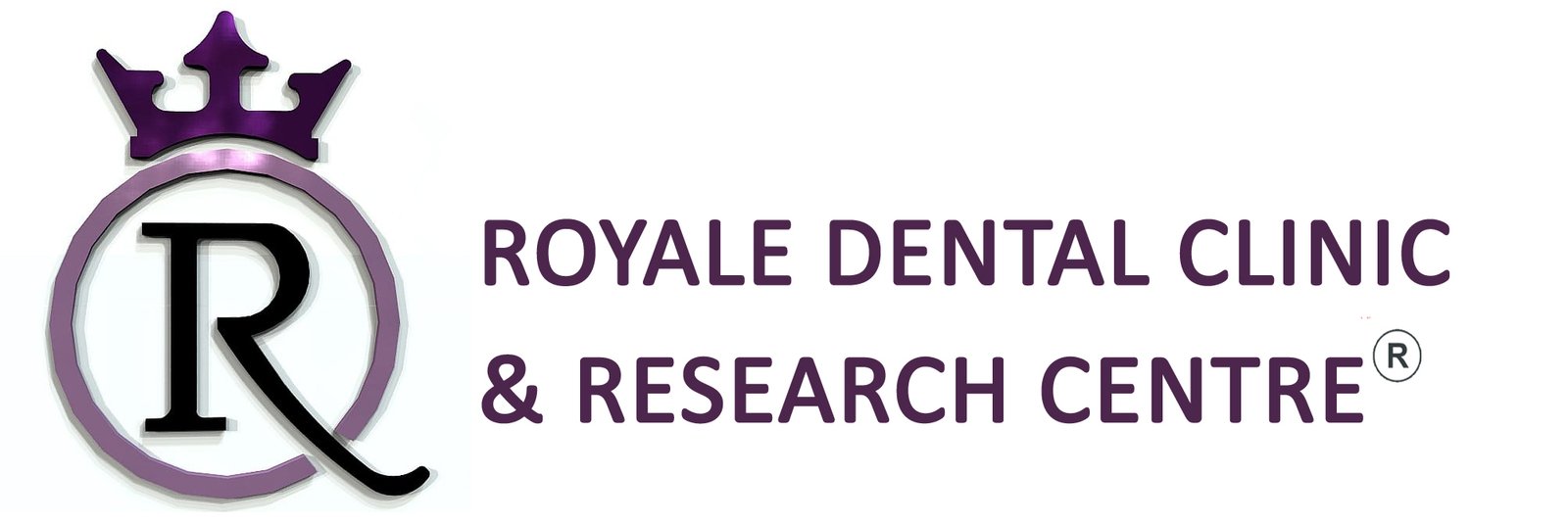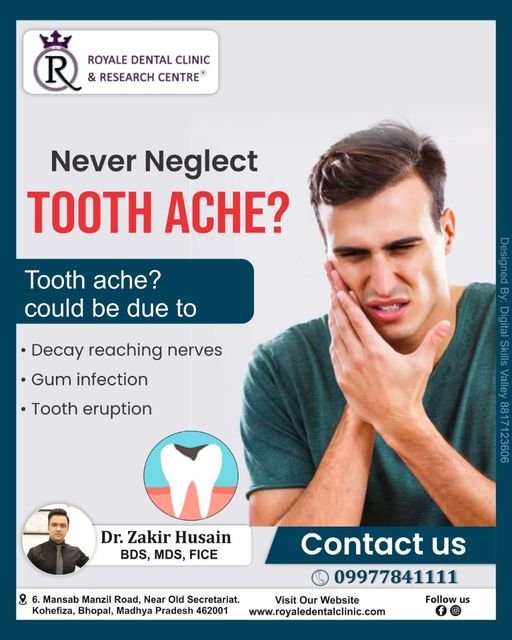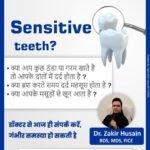Tooth Decay Introduction
Tooth decay also known as dental caries, are a common oral health issue that can cause discomfort, pain, and even lead to more severe dental problems if left untreated. At Royale Dental Clinic in Bhopal.
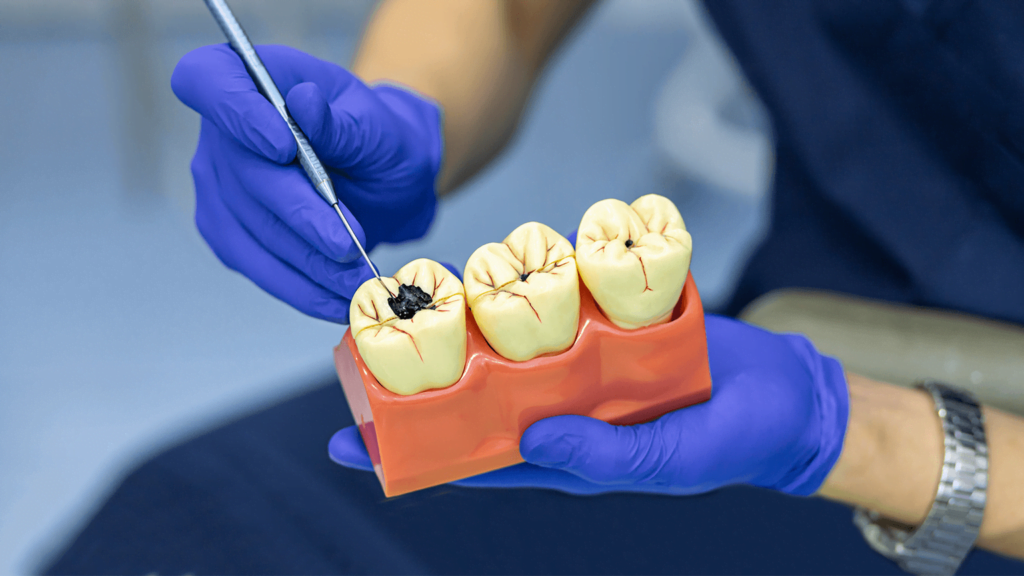
we understand this concern. Therefore, we emphasize the importance of educating our patients about the causes of cavities and empowering them with knowledge to maintain a cavity-free smile.
In this blog post, we’ll delve into the factors that contribute to cavity formation and subsequently provide you with valuable insights to help you prevent them.
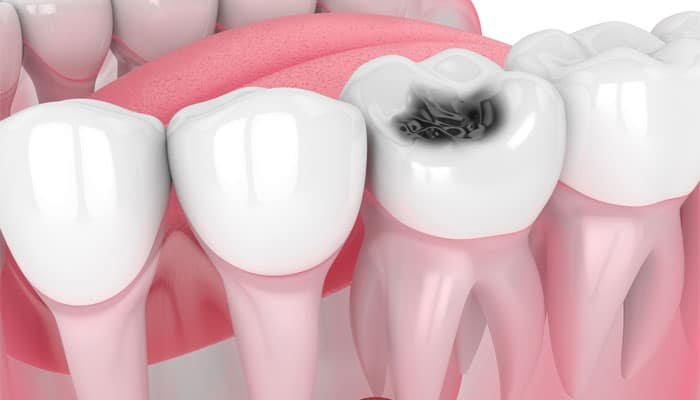
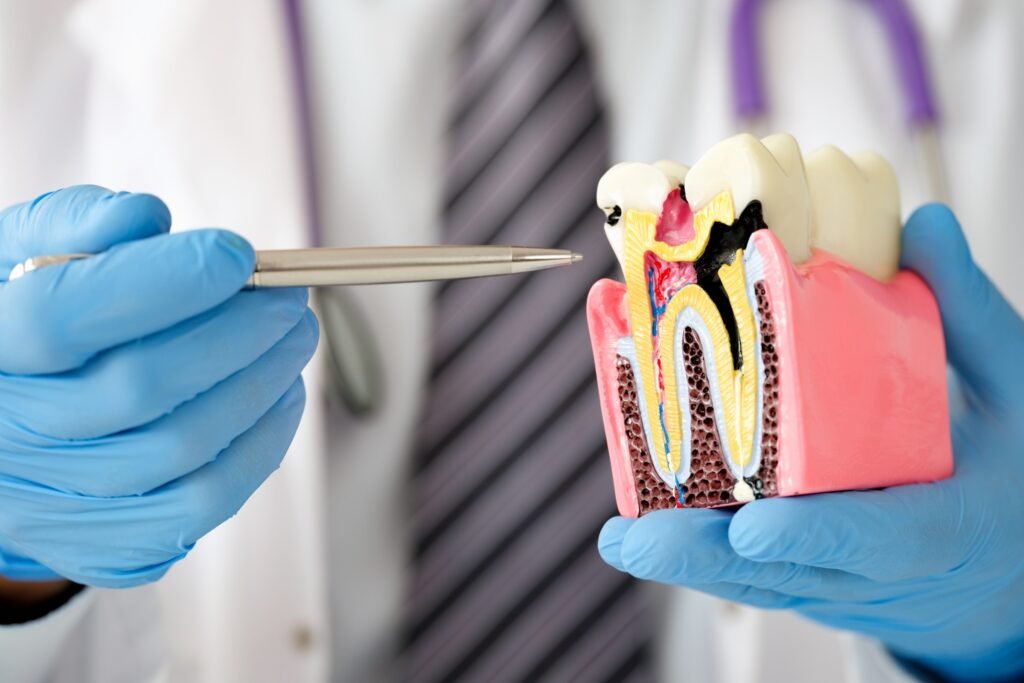
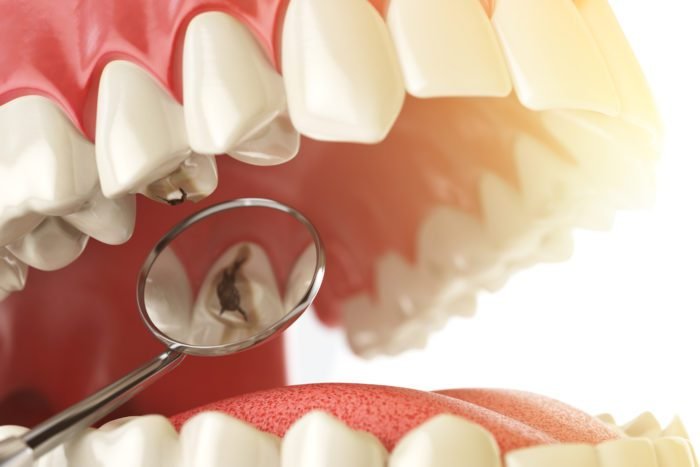
One of the primary causes of cavities is inadequate oral hygiene practices. For instance, when dental plaque, a sticky film of bacteria, accumulates on teeth.
It produces acids that erode tooth enamel over time. To combat this, regular brushing, flossing, and tongue cleaning help remove plaque and prevent cavities.
Top Factors That Increase the Risk of Cavities tooth decay
1. Another contributing factor: Is sugar and carbohydrate consumption. Specifically, the bacteria in our mouths feed on sugars and carbohydrates from our diet, producing acids as a byproduct.
Consequently, these acids weaken the enamel, leading to cavities. Therefore, limiting sugary snacks and beverages and opting for healthier choices can significantly reduce your risk of cavities.
2. Acidic Foods and Drinks: Frequent consumption of acidic foods and beverages like citrus fruits, soda, and certain energy drinks can soften enamel and make it more susceptible to decay.
It’s advisable to rinse your mouth with water after consuming acidic items and wait a while before brushing to allow your saliva to remineralize your teeth.
3. Insufficient Fluoride Exposure: Fluoride is a mineral that helps strengthen tooth enamel and make it more resistant to acid attacks.
Lack of exposure to fluoride, either through toothpaste, mouthwash, or professionally applied treatments, can increase your susceptibility to cavities.
4. Dry Mouth (Xerostomia): Saliva plays a crucial role in maintaining oral health by neutralizing acids and helping remineralize teeth.
A dry mouth condition can lead to a higher risk of cavities, as there’s less saliva to protect your teeth. Certain medications, medical conditions, and breathing through the mouth can contribute to dry mouth.
Key Lifestyle and Genetic Factors Contributing to Cavities
1. Poor Nutrition: A diet lacking essential nutrients like calcium, vitamin D, and phosphorus can weaken tooth enamel and compromise overall oral health. Including a variety of nutrient-rich foods in your diet supports strong teeth and gums.
2. Improper Brushing Technique: Brushing too hard or using a toothbrush with hard bristles can damage tooth enamel and gums, creating openings for bacteria to settle and cause cavities. Using a soft-bristled toothbrush and gentle circular motions is recommended.
3. Skipping Dental Check-ups: Regular dental check-ups are crucial for detecting cavities in their early stages. Skipping dental visits allows cavities to progress, potentially leading to more extensive treatments.
4. Genetics: Genetic factors can influence the strength of your tooth enamel and the susceptibility to cavities. While you can’t change your genetics, practicing good oral hygiene and adopting a healthy lifestyle can mitigate the impact.
I am so happy, my dear friend, so absorbed in the exquisite sense of mere tranquil existence, that I neglect my talents. I should be incapable of drawing a single stroke at the present moment and yet.
Remember, prevention is key, and a cavity-free smile is within your reach with the right knowledge and commitment to your oral well-being.
Conclusion

Understanding the causes of cavities is the first step towards preventing them and maintaining optimal oral health.
By adopting a diligent oral hygiene routine, making mindful dietary choices, and seeking regular care at Royale Dental Clinic in Bhopal, you can significantly reduce your risk of developing cavities.
